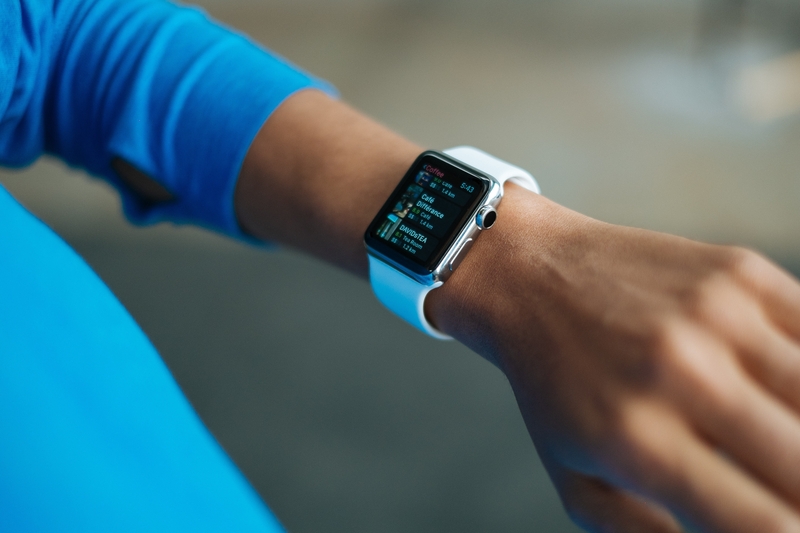
The Cerebro-Cardiovascular Health Engineering Team from City University of Hong Kong (CityU) participated in a 60-person expert Task Force organised and led by the team of Harvard Medical School at Spaulding Rehabilitation Hospital, Boston, USA and published jointly with the team a study entitled “Can mHealth Technology Help Mitigate the Effects of the COVID-19 Pandemic?”
Published in the latest edition issue of IEEE Open Journal of Engineering in Medicine and Biology in August 2020, the study aimed to review mobile health (mHealth) and wearable technologies and explore their use to monitor and mitigate the effects of the COVID-19 pandemic.
The Task Force identified technologies that could be deployed in response to the COVID-19 pandemic and would likely be suitable for future pandemics. They found that wearable-based mHealth technologies are viable options to monitor COVID-19 patients and be used to predict symptom escalation for earlier intervention.
The International Task Force consisting of experts from Wyss Institute at Harvard University, MIT Lincoln Laboratory, Massachusetts General Hospital, Brigham and Women’s Hospital, RWTH Aachen University in Germany, University of New South Wales (UNSW) in Australia, University Hospitals National University of Ireland Galway, ETH Zurich, Politecnico di Torino Turin in Italy, University College Dublin in IRL, and CityU in Hong Kong, etc, was established as part of the Mass General Brigham (MGB) Center for COVID Innovation.
Telehealth usage and mobile health technologies, commonly called mHealth, has gained the attention of the public at large. While telehealth has allowed patients to stay connected for ongoing appointments and check-ins, wearable mHealth technologies provide a significant opportunity for data collection, and mHealth technology could be used to monitor patients with mild symptoms who have tested positive for COVID-19.
These patients are typically instructed to self-quarantine at home or undergo monitoring at community treatment centres. However, a portion of them eventually experience an exacerbation, namely the sudden occurrence of severe symptoms, and require hospitalization.
In this context, mHealth technology could enable early detection of such exacerbations, allowing clinicians to deliver necessary interventions in a timely manner thus improving clinical outcomes.
The Task Force paper concluded that smartphone applications enabling self-reports and wearable sensors enabling physiological data collection could be used to monitor clinical personnel and detect early signs of an outbreak in the hospital/healthcare settings.
They also reported similarly, in the community, early detection of COVID-19 cases could be achieved by building upon prior studies which showed that by using wearable sensors to capture resting heart rate and sleep duration, it is possible to predict influenza-like illness rates as well as COVID-19 epidemic trends.
The better data and tracking that can be collected using mHealth technologies, the easier it will be for public health experts to understand the scope and spread of this virus and, most importantly, help more people get the care they need earlier. The aim is to build on more studies from here and continue to expand our understanding.
The CityU Health Engineering team, in collaboration with experts from several other universities also published another article entitled “Wearable Sensing and Telehealth Technology with Potential Applications in the Coronavirus Pandemic” in IEEE Reviews in Biomedical Engineering, which was ranked as the second among the top 50 popular papers selected monthly by the journal in the recent month.
The objective of this article is to examine enabling technologies and systems from wearable sensing, mHealth, contact tracing, remote diagnosis/telemedicine to portable medical imaging with various application scenarios for handling the COVID-19 crisis.
It presents specifically the recommendation to use wearable devices and mHealth systems in the closed-loop management of patients with acute myocardial infarction, a most life-threatening cardiovascular disease (CVD) during the COVID-19 pandemic.
The Coordinator of the Health Engineering team and Chair Professor in Biomedical Engineering at CityU, a participant in the MGB Task Force and a co-author on both articles stated that to mitigate and control effectively both COVID-19 and CVD, it is critical to developing a precise and rapid response system integrating wearables, mHealth, biosensing, medical imaging and AI that enables early detection, early predication, early prevention, early diagnosis and early intervention of the diseases.
















